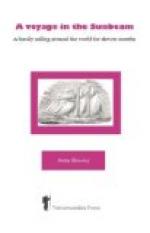In the afternoon we went for a drive in the park, and to see Santa Lucia, of which, as the only hill in Santiago, the inhabitants of the city are very proud, and from thence drove to the Cousino Park, an extensive piece of ground near the Alameda, laid out and arranged under the direction of the late Don Luis Cousino, and presented by him to the city of Santiago.
After a stroll round the park, Mr. Long took us to an emporium for Panama hats, which are made in Lima, Guayaquil, and other states of Chili, as well as in Panama, from a special kind of grass, split very fine, and worn by almost everybody on this coast. The best made cost 340 dollars, or about sixty guineas, and fifty pounds is not at all an uncommon price to pay, though the inferior kind may be had for two pounds. Those ordinarily worn by the gentlemen here cost from twenty to thirty pounds each, but they are so light, pliable, and elastic that they will wear for ever, wash like a pocket-handkerchief, do not get burnt by the sun, and can be rolled up and sat upon—in fact, ill-treated in any way you like—without fear of their breaking, tearing, or getting out of shape. For the yacht, however, where so many hats are lost overboard, they would, I fear, prove a rather unprofitable investment.
We now drove back to the hotel, past the Mint, a handsome building, guarded by soldiers, and with windows protected by iron gratings. On our return I found that one of the valuable ponchos, given to me in the Argentine Republic, had been taken from our room. The landlord declined to trouble himself about its recovery, as he said it was ’most unlikely that any one would take a thing of no value to him here;’ the real truth being that the guanaco ponchos are worth nearly double as much in Chili as they are on the other side of the Andes.
After dinner we walked to the theatre, where we saw La Sonnambula well put on the stage, and well sung and acted by an Italian opera company. The prima donna, contralto, baritone, and bass were all good, but the scenery was occasionally somewhat deficient. The house, which is highly decorated—perhaps too much so for the ladies’ dresses—looked well by night, though if it had been full the effect would have been still better. The box-tiers are not divided into pigeon-holes, as they are with us, and everybody can therefore see equally well. The Presidential box seemed commodious and handsome, and had the Chilian coat of arms in front of it, making it look very much like a Royal box.
The walk back by moonlight was delightful. Some of our party afterwards went to the Union Club, where they met several English gentlemen, who were most kind and pressing in their invitations to them to stay a few days longer, and go up the mountains to see the views and to have some guanaco shooting. About twenty-four hours from here they say you can have your first shot, and a little further on you meet them in herds which may be counted by thousands. There are also wild horses and wild donkeys. Quaggas and huemuls used to be found, but are now extinct. The last named is a rare animal, exactly resembling a horse in every particular, except that its hoofs are cloven. It used only to be found in the mountains of Chili, and it is one of the supporters of the national coat of arms.




